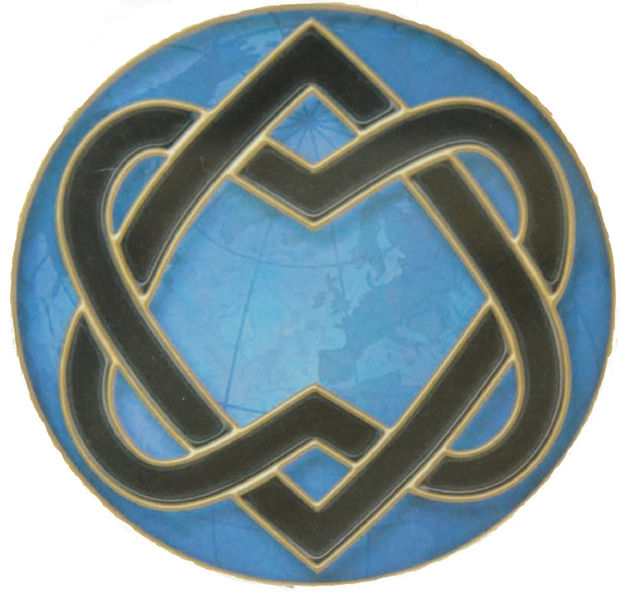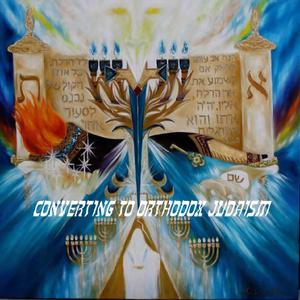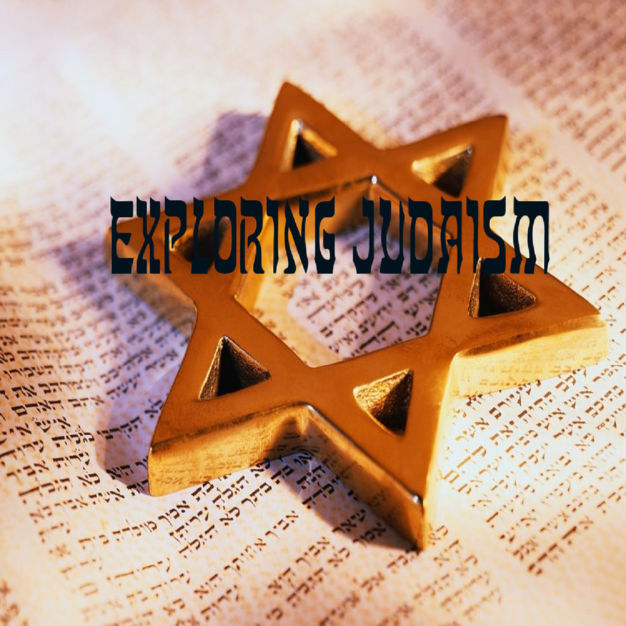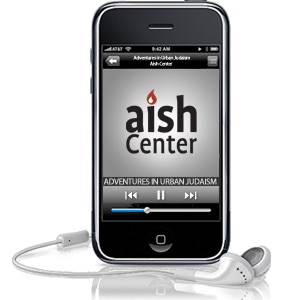
Authentic, Compassionate Judaism for the Thinking Person
Rabbi Nadav Caine
In addition to explicating individual chapters of the Torah using traditional sources to apply directly to our daily lives, Rabbi Caine or "Rav Nadav" (as he is affectionately known) teaches on topics such as The Soul, Mysticism, Theology, Ethics, Comparative Religion, Science & Religion, and Psychology of Religion. Rav Nadav studied religion and philosophy at Princeton, Harvard, and Stanford Universities. An award winning teacher and Conservative rabbi, he now serves as a congregational rabbi in San Diego.
- 13 minutes 12 secondsA People of the Book and a Generation That Has Never Read One
If you want to understand the crisis in education, look no further than Natalie Wexler's "The Knowledge Gap," one of the most important books of the past ten years. Is reading a skill you apply to any text, like stretching a muscle, or playing a video game, or is it, as our tradition defines it, something entirely different, something based on knowledge of the world, of life, and of relating to a larger story?
14 January 2025, 6:31 pm - 12 minutes 33 secondsThe Tower of Babel and the Problem of Identity-Based "Truths"
The plain sense of the brief Tower of Babel story is that dividing people up by their own languages is a curse that prevents cooperation (even if the Rabbis read the story differently). Using Coleman Hughes's essay on the Civil Rights hero Bayard Rustin, I wonder if the curse of our times is the identiy-based division of truths: is this modern paradigm a blessing of diversity or a curse for our much needed cooperation in solving our collective problems?
7 January 2025, 5:48 pm - 14 minutes 44 secondsDid Isaac Have Imposter Syndrome? Is it a Curse or a Blessing?
Isaac's entire story arc suggests that he continually sees himself as the opposite of how folks see him. But is imposter syndrome a curse, or a blessing?
18 December 2024, 6:17 pm - 16 minutes 9 secondsMisunderstanding Consent, Property and Patriarchy in Jewish Wedding Ceremonies
Using the text of Genesis chapter 24, Talmud Bavli Ketubot 82b, and the Conservative Movement responsum by Rabbi Pamela Barmash, I try to correct the pervasive misunderstings around the Jewish wedding ceremonies: Does arranged marriage (historically and today) exclude female consent? Is the Jewish wedding ceremony one of male acquisition of a female? Is the ketubah a wedding document or a prenuptial agreement that protects the bride and her property?
26 November 2024, 2:59 pm - 26 minutes 35 secondsMoving Beyond the Progressive Lens to True Religion (Yom Kippur 2024)
How do the ideals of progressivism become the idols of antisemitism? As a rabbi in one of the most progressive cities in America, I try to understand this phenomenon through scapegoat theory and through my own heartbreaking experiences. So what do we tell our college students? How do we heal instead of hurt? How do we get to the Thou? (Sermon, Yom Kippur 2024/5785)
22 October 2024, 10:46 pm - 27 minutes 50 secondsWe're All Looking for Empathy after October 7th, Including Me! (Rosh Hashanah Sermon 2024)
As a Conservative rabbi in one of the most progressive cities in America, it's been an incredibly painful year of feeling unable to ask for empathy from my own fellow Jews, as I see this year's events as Good vs Evil, and so many of my congregants want me to be condemning Israel while declaring moral equivalencies. And I know they, too, need from me what I cannot give them: validation for their perspective. This sermon is my way of coming to terms with all of it.
6 October 2024, 3:45 pm - 17 minutes 6 secondsWriting G-d and the Danger of Idolatry
This dvar Torah uses the amazing article by Rabbi David Golinkin on the history of the halakhah and the practice. It can be found at: https://schechter.edu/must-gods-name-be-written-in-english-as-g-d/
3 September 2024, 7:29 pm - 11 minutes 57 secondsDid a Biblical Outlaw Understand the Arab-Israel Conflict Better than Today's Students?
It is commonplace to hear today's Israel-Arab Conflict portrayed as an example of Settler-Colonial European Jews settling in the nation-state of indigenous-dwelling Palestinians. This is a modern invention and is not how the conflict was understood by local Arabs a hundred years ago, who did so in rational terms that match the Biblical arguments between the Israelites (Gideonites) and local Ammonites in Judges chapters 10 and 11. Using the recent scholarly work of Jonathan Marc Gribetz as well as Alex Stein's Love of the Land substack, I show how the ancient outlaw leader Yiftach understood today's situation better than student demonstrators, colonial marxist professors, and Western Hamas apologists.
14 July 2024, 1:03 pm - 6 minutes 33 secondsThe Biblical Battle of the AI Priesthood Lineage21 May 2024, 4:41 pm
- 14 minutes 54 secondsAmalekites, Gaza and the End of Megillat Esther on Purim
As Purim became a holiday of tremendous festivities and lightheartedness, the Rabbis knew that the end of the Megillah in Chapter 9 has a dubious quality, that of a massacre on Haman's people. Is this a happy ending, a desirable ending, that of massacre, that of Jews finally (and really for its time, only possible in the Jewish imagination but not in practice) having power? So the Rabbis created a requirement that on the Shabbat morning before Purim, one must read about the Amalekites. In this podcast, I present traditional commentary and observations given the context of the fighting in Gaza.
24 March 2024, 6:23 pm - 9 minutes 11 secondsThe 19th Century Reform Rabbi Who Changed Physics
The most influential rabbi you've never heard of? Based on an episode of the RadioLab podcast ("Relative Genius") and a biography in the Jewish Encyclopedia -- https://www.jewishencyclopedia.com/articles/12611-rebenstein-aaron -- I tell you about the extraordinary Rabbi Aaron David Bernstein who likely accomplished more in his lifetime by himself than your average Ivy League university!
19 February 2024, 3:05 am - More Episodes? Get the App
Your feedback is valuable to us. Should you encounter any bugs, glitches, lack of functionality or other problems, please email us on [email protected] or join Moon.FM Telegram Group where you can talk directly to the dev team who are happy to answer any queries.
 Madlik Podcast – Torah Thoughts on Judaism From a Post-Orthodox Jew
Madlik Podcast – Torah Thoughts on Judaism From a Post-Orthodox Jew
 Conversion To Orthodox Judaism
Conversion To Orthodox Judaism
 Exploring Judaism with Rabbi Michael Skobac
Exploring Judaism with Rabbi Michael Skobac
 College of Judaism
College of Judaism
 Judaism
Judaism
 Adventures in Urban Judaism
Adventures in Urban Judaism